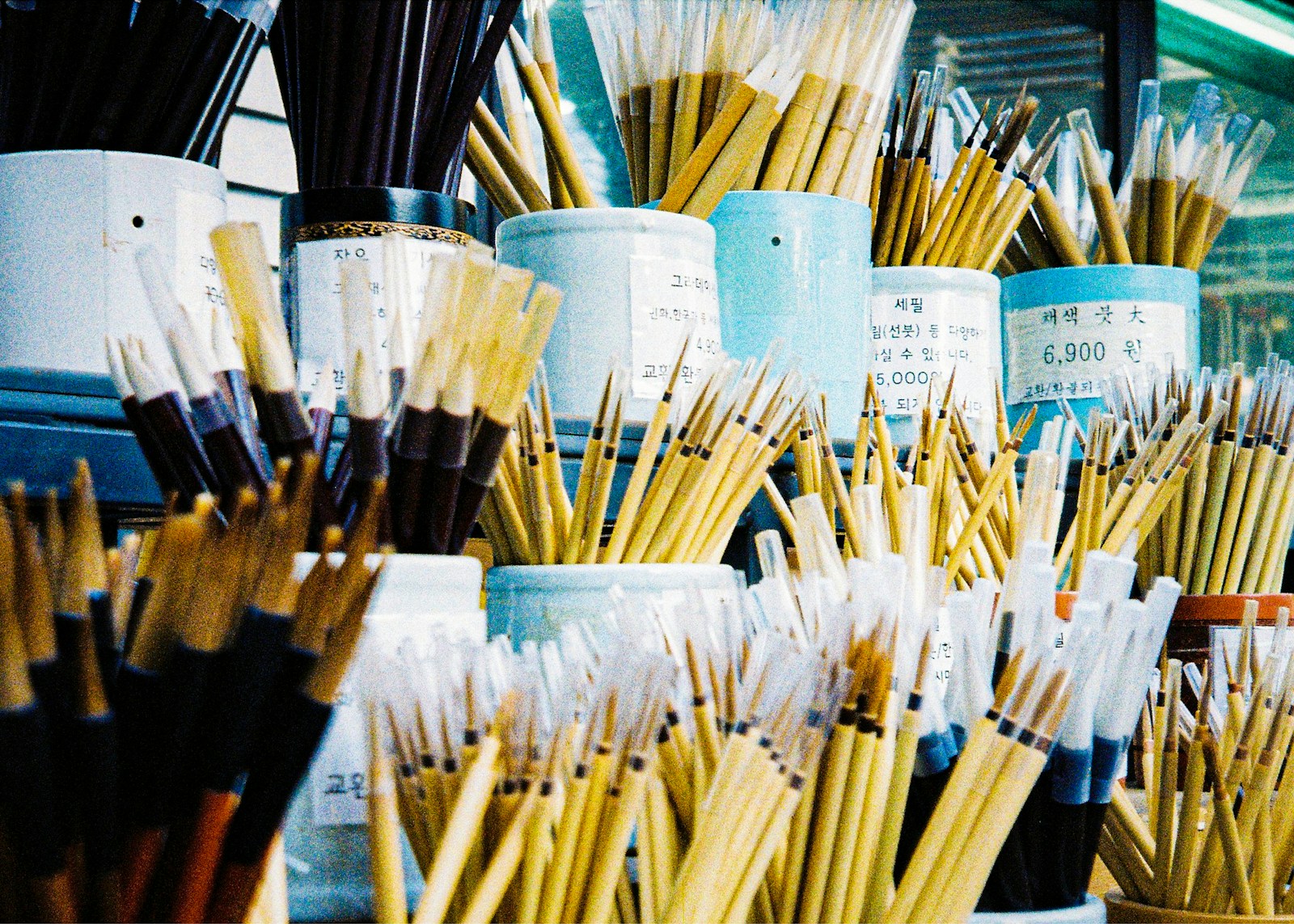
刷子
shuā zi

brush
In Chinese, the word for 'brush' is '刷子'. It can be used in similar contexts as in English, such as when referring to paint brushes, hair brushes or toothbrushes. It can also be used in broader contexts, such as to 'brush' or 'swipe' a card.
Example sentences using: 刷子
我需要一个新的刷子。
Wǒ xūyào yīgè xīn de shuāzi.

I need a new brush.
In this sentence, the speaker is expressing a need for a new brush.
我无法找到我的刷子。
Wǒ wúfǎ zhǎodào wǒ de shuāzi.

I can't find my brush.
The speaker here is stating that they are unable to locate their brush.
刷子在哪里?
Shuāzi zài nǎlǐ?

Where is the brush?
This sentence is a question seeking the location of a brush.
这是我的刷子。
Zhè shì wǒ de shuāzi.

This is my brush.
The person is claiming ownership of a brush in this example.
你可以借我你的刷子吗?
Nǐ kěyǐ jiè wǒ nǐ de shuāzi ma?

Can you lend me your brush?
The speaker here is requesting to borrow a brush from the person they are speaking to.
这个刷子太老了。
Zhège shuāzi tài lǎo le.

This brush is too old.
This phrase is expressing the speaker's opinion that a brush is too old or worn out.
我刚买了一个新的刷子。
Wǒ gāng mǎile yīgè xīn de shuāzi.

I just bought a new brush.
The speaker is talking about a recent purchase of a new brush.
把刷子给我。
Bǎ shuāzi gěi wǒ.

Give me the brush.
The speaker is issuing a direct command for someone to hand them a brush.
刷子掉在地上了。
Shuāzi diào zài dìshàng le.

The brush fell on the floor.
This sentence mentions an event where a brush has fallen onto the floor.
你把刷子弄丢了吗?
Nǐ bǎ shuāzi nòng diūle ma?

Did you lose the brush?
The speaker is asking someone else if they have misplaced a brush.